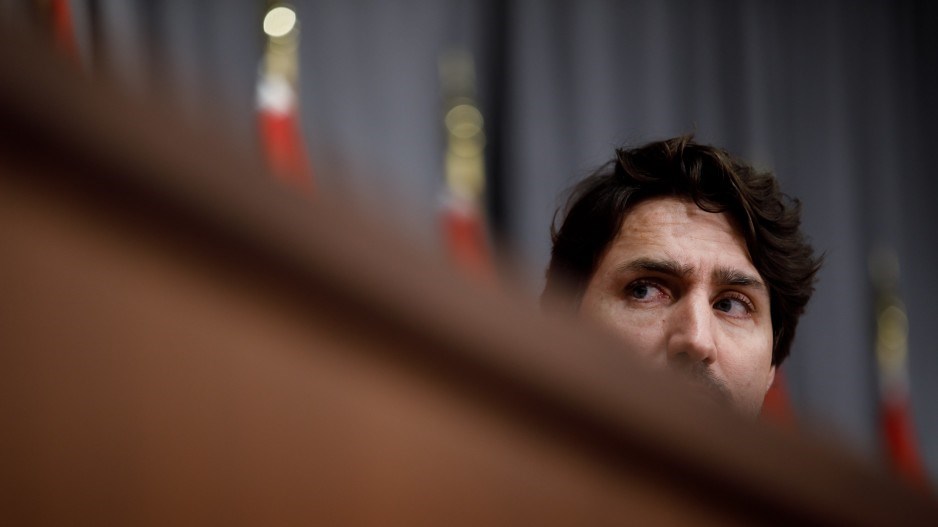Canadians banking on COVID-19 vaccine generosity from their southern neighbours may have to wait a little longer.
Prime Minister Justin Trudeau says the finer details are still being ironed out regarding efforts that would see mandatory quarantining waived for Canadians returning home from getting their jabs across the border.
“Conversations are still very much ongoing around waiving quarantine requirements. That’s something that I think all Canadians have a little concern around,” he said during a Friday briefing, while acknowledging that workers such as truck drivers have not been subject to mandatory quarantining upon entering the country.
Manitoba Premier Brian Pallister said Thursday teachers in his province would be permitted to travel to North Dakota to receive vaccinations following offers from that state, where vaccine doses are in more abundance.
СÀ¶ÊÓƵ provincial health officer Dr. Bonnie Henry said later that same day she has been “talking to Washington state about potentials” for cross-border vaccination efforts.
“We are working to ensure that people get vaccinated right across the country as quickly as possible and we’ll continue those conversations with Manitoba and others,” Trudeau said.
Meanwhile, the prime minister said he is happy to “work more narrowly” with the Ontario government following a request from Premier Doug Ford that Canada suspend the arrival of international students.
He said Ontario is the only province that has made such a request.
Reporters pressed Trudeau throughout Friday’s briefing about Canada’s border restriction measures, while the prime minister insisted that current requirements — such as proof of negative COVID-19 tests 72 hours before arrival, testing upon arrival and mandatory quarantining — have been effective at mitigating COVID-19 cases.
Community transmission, said Trudeau, has been the primary reason behind recent surges in cases in many provinces.
Many of those cases, though, have been linked to more contagious COVID-19 variants that were first detected in other countries, such as the U.K. and Brazil.
There have also been reports of Canadians in the U.S. returning home by flying to border towns and crossing at land borders to avoid mandatory hotel quarantines.
Trudeau sidestepped a question about that issue when asked, instead pointing to different arrival procedures for Canadians arriving in the U.S. from other countries before travelling into Canada.
Just under 15 million doses of vaccines have been distributed across the country as of Thursday morning.
The country is due to accept more than two million doses weekly from Pfizer beginning next week, with regular deliveries scheduled through to the end of June.
“Pfizer has informed us that they will be shipping Canada’s doses from Kalamazoo(, Michigan,) beginning next week,” Procurement Minister Anita Ananda said during the Friday briefing.
СÀ¶ÊÓƵ is due to receive between 275,000 and 329,000 doses weekly during that same period for a total of 2,741,310 doses.
So far, 1,659,079 British Columbians — or 39% of the eligible population of 4.3 million people — have received at least one dose, while 90,296 have received second doses.
Nearly 136,000 Moderna Inc. doses are due to arrive in СÀ¶ÊÓƵ the week of May 10 as the country awaits updates about the pharmaceutical company’s delivery schedule.
It’s unclear how many of the one-dose Johnson & Johnson doses will be allocated to СÀ¶ÊÓƵ after the first delivery of 300,000 doses arrived in Canada earlier this week.
There are not presently any additional scheduled deliveries of the AstraZeneca plc vaccine.
The U.S., which has not yet approved the vaccine, sits on a surplus of supply and India faces an urgent need to combat a surge of COVID-19 cases. Both countries have the capacity to manufacture the AstraZeneca vaccine, while Canada does not.
Anand said the country is being “very aggressive” with AstraZeneca about getting vaccine doses into the country, adding the country will have four million more doses in the country “from a variety of locations” before the end of June.
With more than 4.5 million doses due to arrive in СÀ¶ÊÓƵ by the end of June, health officials will be ramping up second doses for British Columbians.



